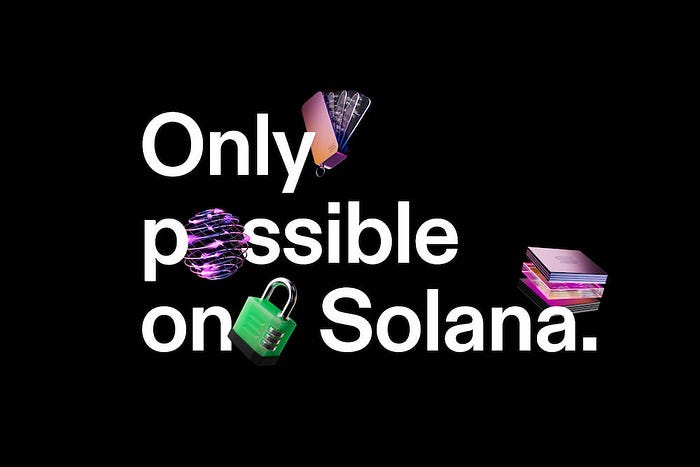Solana Gulf Stream
Mempool-less Transaction Forwarding Protocol
Introduction
How many times have you heard the iconic phrase “OPOS”? Probably many, and most likely, most of the time it has been in reference to specific milestones within the community. But, did you know that there is a list of 8 key technologies that make up Solana’s architecture and make it literally Only Possible On Solana?
They are:
- Proof of History (PoH) — a clock before consensus
- Tower BFT — a PoH-optimized version of PBFT
- Turbine — a block propagation protocol
- Gulf Stream — Mempool-less transaction forwarding protocol
- Sealevel — Parallel smart contracts run-time
- Pipelining — a Transaction Processing Unit for validation optimization
- Cloudbreak — Horizontally-Scaled Accounts Database; and
- Replicators — Distributed ledger store
Empowered by 8 key technologies, Solana breaks free from the constraints of the blockchain trilemma, ensuring an unparalleled user experience and positioning itself as the formidable force to challenge the status quo.
In this article, we will take a deep dive into Gulf Stream, a mempool-less transaction forwarding protocol. In July 2019, Anatoly Yakovenko, co-founder of Solana, published an essay for the first time introducing this technology.
Before delving into the intricacies of Gulf Stream, it’s crucial to understand the role of a mempool. As Anatoly Yakovenko aptly describes in his essay, a mempool serves as a “a set of transactions that have been submitted, but have not yet been processed by the network.”
Mempools play a pivotal role in the architecture of traditional blockchains, but they can also pose a significant challenge to improving network performance.
A larger mempool indicates a higher volume of unprocessed transactions, which can negatively impact transaction processing speed (TPS). When a mempool becomes congested, nodes take longer to process transactions, leading to overall network slowdown.
Additionally, transaction prioritization mechanisms within the mempool can further influence TPS. If transactions with higher fees are prioritized, this can create delays for lower-fee transactions, hindering overall processing capacity.
Mempool-less Transaction Forwarding Protocol: The Key to Solana’s Scalability
Gulf Stream revolutionizes the way transactions are processed, eliminating the need for a centralized mempool and unlocking unprecedented scalability and efficiency.
By eliminating the mempool bottleneck, Solana empowers edge caching and transaction forwarding, effectively pushing transaction processing to the network’s edge. This innovative approach eliminates the latency and congestion associated with traditional mempools, enabling Solana to handle a massive volume of transactions with unparalleled speed and efficiency.
Delving into the Mechanisms
Gulf Stream’s ingenious design operates on the principle of a distributed and anticipatory mempool. This revolutionary approach empowers validators to initiate transaction processing even before the preceding block is confirmed.
Transactions are forwarded to validators in a more efficient manner, slashing latency and boosting overall performance. Gulf Stream’s architecture enables parallel processing of multiple transactions, maximizing the utilization of hardware resources.
By distributing transactions evenly among validators, network congestion is effectively minimized, ensuring a seamless and efficient transaction processing experience.
Gulf Stream Process with a transaction
- Clients, such as wallets, sign transactions that reference the hash of a specific block. This block hash must be relatively recent and fully confirmed by the network.
- The transaction is only valid if it is included in the child blocks of the referenced block and has a limited lifetime (TTL) measured in blocks. A block hash is estimated to have a TTL of approximately 32 blocks, which equals 24 seconds considering a block time of 800ms.
- Once a client sends a transaction to a validator, it forwards it to one of the upcoming leaders. Clients can subscribe to transaction confirmations from validators.
- The client knows that the block hash used as a reference has a finite lifetime. The transaction will be confirmed by the network or expire. This allows clients to sign transactions with the assurance that they will either execute or fail.
- Once the network surpasses the rollback point and the block hash referenced by the transaction expires, the client is assured that the transaction is now invalid and will never execute on the blockchain.
Conclusion
Gulf Stream is an example of how Solana breaks barriers and redefines what is possible in this field.
By eliminating the need for a centralized mempool, Solana not only drastically improves the speed and efficiency of transactions, but also brings us one step closer to solving the famous blockchain trilemma. This innovation is a testament to the power of thinking differently and challenging established conventions.
As users and enthusiasts of blockchain technology, we are witnessing an era of rapid and exciting changes. The speed, scalability, and efficiency that Gulf Stream brings to Solana are not just technical improvements; they open up new opportunities for innovation and mass adoption.
The path towards a truly scalable and efficient blockchain is underway, and Solana is at the forefront of this revolution.
Let’s stay attentive and excited about what the future holds for us in this thrilling journey towards a more decentralized and accessible web for all.

































